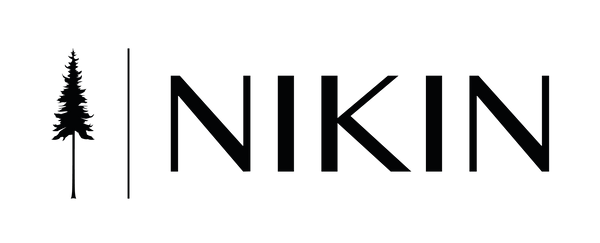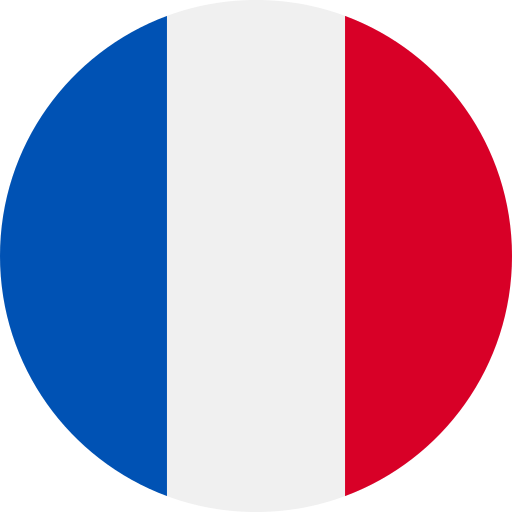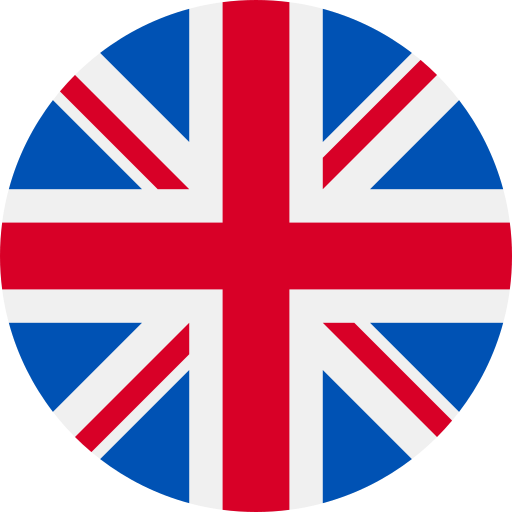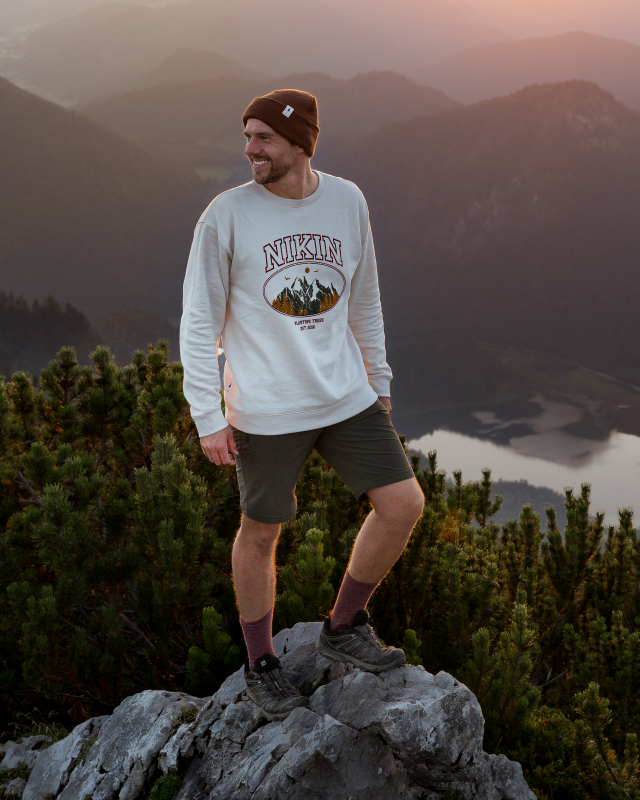Merino wool is not new and has been used as a natural material for clothing for centuries. It is considered to be particularly durable, biodegradable and temperature-regulating, making it a sustainable alternative to many synthetic fibers. We at NIKIN have decided to offer products made from pure merino wool for the first time. In this blog, you can find out what merino wool is, what properties characterize it, how it is cared for and why we took this step.
What is merino wool?
Merino wool comes from the Merino sheep, a breed of sheep that originally comes from North Africa and is now mainly kept in Australia, New Zealand and South Africa. It is one of the finest types of wool in the world. Its fibers are up to four times thinner than human hair, making it particularly soft and flexible. Another distinguishing feature is that, unlike conventional new wool, merino wool is not itchy and is pleasantly smooth on the skin.
The fine structure of the wool also ensures that it is breathable and thermoregulating: in other words, it keeps you warm when it's cold, cools you down when it's warm and transports moisture away from the body. This creates a balanced wearing climate. Merino wool also has a natural odour-neutralizing effect, as its fibres inhibit the formation of bacteria. This makes it particularly popular for functional clothing, outdoor clothing and everyday wear that stays fresh for a long time without having to be washed frequently.

Merino wool in the sustainability check
How sustainable a material really is in the end can only be seen in the overall picture. So let's take a look at the advantages of natural fibers and where their limits lie. Merino wool has both:
Advantages of merino wool
- Renewable raw material: sheep produce new wool every year without reducing the animal population.
- Durable: Wool clothing is robust, retains its shape and will last for many years if cared for properly.
- Biodegradable: Pure wool decomposes in nature and returns nutrients such as nitrogen and carbon to the soil.
- Less washing necessary: Wool is odor and dirt repellent - airing is often enough. This saves water, energy and detergent.
- Thermoregulating: Wool warms in the cold, cools in the heat and can absorb up to 30 % of its own weight in moisture without feeling wet.
- Recyclable: Old woolen clothing can be processed into yarn, felt or insulation material.
Points of criticism and challenges
Of course, merino wool is not without its challenges:
- Livestock farming: Large flocks of sheep require a lot of land. Incorrect grazing management can pollute the soil and contribute to CO₂ emissions.
- Transportation routes: A large proportion of wool is produced in Australia and New Zealand, which means long supply chains.
- Chemical treatment: Some wool products are heavily treated (e.g. superwash with chlorine), which is harmful to the environment.
- Animal welfare: Practices such as mulesing are ethically unacceptable and are rightly criticized.
Merino wool can be a very sustainable material - if it comes from responsible animal husbandry, without cruel practices, with gentle processing and a durable design.

Merino wool with responsibility - how we work at NIKIN
When selecting our materials, it is always important to us that they are durable, functional and responsibly produced. And we want to create products that conserve resources and therefore the environment. That's why we make sure that our merino wool fabric suppliers comply with the internationally recognized Responsible Wool Standard (RWS) are certified. This certificate ensures that wool production and processing along the supply chain is controlled according to clear criteria. These include
- Species-appropriate animal husbandry: Sheep are treated respectfully, with access to food, water and open spaces. Practices such as mulesing are strictly prohibited.
- Sustainable pasture management: The land is managed in such a way that soils, ecosystems and biodiversity are protected in the long term.
- Transparency in the supply chain: Every step, from the farm to the spinning mill to processing, is documented and verifiable.
- Social standards: Working conditions along the supply chain must also be fair and safe.
Our merino wool comes from Australia, New Zealand and South Africa - regions known for their experience with sheep farming. It is then processed into yarn by our long-standing partner in Lithuania and knitted into finished textiles in Europe.
There is currently no traceability back to individual flocks of sheep, but by purchasing from RWS-certified suppliers, we can ensure that clear and binding criteria are met. In this way, we can ensure that our merino wool products are not only comfortable to wear, but also comply with our values in terms of sustainability and responsibility.
Why NIKIN is now using merino wool
Since our foundation in 2016, we have completely dispensed with animal-based materials. Many of our customers value us for this. At the same time, the demand for wool has reached us more and more frequently in recent years - especially for products that are breathable, durable and suitable for outdoor activities. To take these voices seriously, we launched a large community survey in 2023. We wanted to find out: Should NIKIN include wool in its range? And if so, under what conditions? The result was clear: the majority wanted products made from wool, but only if animal welfare and sustainability are uncompromisingly guaranteed.
As a result, we searched intensively for solutions that matched our values. With merino wool from RWS-certified suppliers, we have found a way that meets our requirements in terms of quality, durability and sustainability. This decision was not made lightly, but after carefully weighing up the opportunities and risks.
Our range remains over 99% vegan and free from animal materials. Products made from leather, silk or similar raw materials are not planned for the future. For us, merino wool is an addition that was deliberately selected because, as a natural fiber, it offers a unique combination of functionality, comfort and environmental compatibility.

Merino wool care: how to make it last forever
Now that we also offer merino wool products in our range, it is important to us that they are cared for properly so that they last a particularly long time. After all, wool thrives on proper care. It needs to be washed less often than other materials, which extends its lifespan and protects the environment.
- Airing instead of washing: Odors usually disappear simply by airing out.
- Wash gently: If necessary, cold in the wool program or by hand with mild wool detergent.
- Do not wring out: Squeeze out carefully after washing, do not twist.
- Dry flat: leave lying flat, do not hang up - this way it keeps its shape.
- Store correctly: folded in the cupboard, keep moths away with lavender or cedar wood.
- Repair instead of replace: Plug small holes, remove pilling with a wool comb.
If you are unsure about how to care for a particular material, you can always consult Clevercare.
Our first products made from merino wool
We are launching two products made from merino wool sourced from RWS-certified suppliers: Our TreePullover Merino for Men and Women are light and soft, have the tree embroidery on the chest and are pre-washed and made to last. The Treeanie Merino complements the outfit on a cold day, as it is temperature-regulating, dimensionally stable and made with natural elasticity. Both products also come with a special wool hangtag and detailed care instructions.
For you, this means that our new merino wool products can accompany you for many years with good care, as they are timeless, high-quality and responsibly produced.

FAQ about merino wool at NIKIN
Our range remains 99% vegan. Due to the great demand and after discussions with our community, we have decided to use merino wool - but only under clear sustainability and animal welfare conditions.
Yes, if it comes from responsible animal husbandry. It is durable, biodegradable, rarely needs to be washed and can be recycled.
In principle, sheep farming and grazing areas also have an ecological impact. Management is crucial: certified standards such as the Responsible Wool Standard (RWS) stipulate sustainable management of grazing areas and thus contribute to the protection of soils and ecosystems. Merino wool can therefore be an environmentally friendly alternative - especially if it is used for a long time.
RWS-certified farms are required to manage their pastures sustainably. Sheep feed mainly on grass and plants on the pastures. There is no direct link to rainforest soy.
Merino wool is very durable if it is cared for properly. It should only be washed rarely, cleaned gently in the wool program or by hand if necessary and always dried flat.
Our wool comes from suppliers who are RWS-certified - this ensures that the sheep are kept mulesing-free. Animal welfare is our top priority.
From Australia, New Zealand and South Africa. It is processed into yarn and textile surfaces in Lithuania.
We source our merino wool from RWS-certified suppliers (Responsible Wool Standard). This seal guarantees species-appropriate animal husbandry, a ban on mulesing, sustainable pasture management and transparent supply chains.
We already rely heavily on recycled fibers. Merino wool complements our range with a durable, natural material that often outperforms synthetic alternatives in terms of functionality - for example, by regulating temperature and being odorless.
Yes, our range remains over 99% vegan. Merino wool is an addition that we have deliberately chosen, but the majority of our products are still based on natural plant fibers or recycled materials.
No, materials such as leather, silk or similar raw materials will not be used.




















